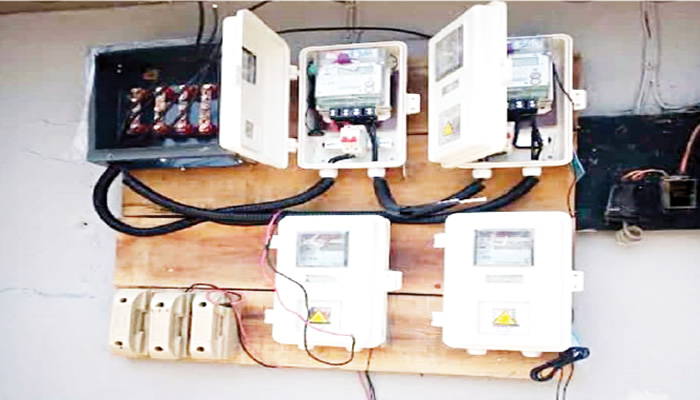The latest update on metering by the Federal Government has shown that 609,585 electricity consumers were metered in 2023, while the number of unmetered registered power users nationwide stood at 7,319,846.
An analysis of data obtained from the Nigerian Electricity Regulatory Commission indicated that out of the 13,162,572 registered consumers who get supply from the national grid, 5,842,726 have been metered.
This puts Nigeria’s overall metering rate of electricity customers at 44.39 per cent, while 55.61 per cent of others get their bills through estimation from the 11 power distribution companies nationwide.
An analysis of data from NERC showed that in the first quarter of 2023, 171,107 power users got meters, while 178,864, 148,389, and 111,225 electricity consumers were metered in the second, third, and fourth quarters.
The low meter rollout by Discos has been an issue of concern since the privatisation of the power sector in November 2013.
Power users receiving estimated bills from Discos have repeatedly kicked against this, as many have demanded meters.
To help tackle the challenge, the Bureau of Public Enterprises announced on Thursday that the Federal Government had secured a $500m World Bank loan to procure meters.
“In a strategic move to address the identified gaps in the electricity distribution companies, the Federal Government of Nigeria has secured a $500m loan from the World Bank,” BPE stated in a statement issued in Abuja by the Head of Public Communication, Amina Othman.
It added, “Approved on February 4, 2021, by the World Bank board of directors, this funding supports the Nigerian Distribution Sector Recovery Programme aimed at improving the financial and technical performance of the Discos.
“The DISREP is designed to enhance the financial and technical operations of the Discos through capital investment and the financing of key components of their Performance Improvement Plans, which have been approved by the Nigerian Electricity Regulatory Commission.”
The bureau stated that key areas of improvement included bulk procurement of customer/retail meters and meter data management systems, implementation of a Data Aggregation Platform, and strengthening governance and transparency within the Discos.
Similarly, the Minister of Power, Adebayo Adelabu, recently stated that the presidential metering initiative had been scheduled to provide two million meters per annum for the next five years to improve the sector’s liquidity and limit estimated billing.
“Completion of the bidding process for 1.5 million meters from the World Bank Distribution Support Recovery Programme to improve sector liquidity and reduce estimated billing has been done.
“46,089 meters have been procured and deployed to military formations nationwide to reduce MDA (Ministries, Departments, and Agencies) debts and improve sector liquidity,” the minister stated during a ministerial briefing in Abuja.
Meanwhile, in the latest fourth-quarter NERC report analysed by our correspondent, the commission outlined the schemes through which the metering of power users was done in the sector in 2023.
It said the meters were supplied through the Meter Asset Provider scheme, Vendor Finance framework, and the National Mass Metering Programme.
It said, “A total of 111,225 meters were installed in 2023/Q4, representing a decrease of 38,520 installations (-25.72 per cent) compared to the 149,745 meters installed in 2023/Q3.
“Out of the 111,225 new meter installations, 110,132 meters were installed under the MAP framework, and 1,072 meters were installed under the vendor-financed
framework and 21 meters were installed under the NMMP framework. There were no meter installations under the Disco Financed framework.”
The commission said it expected Discos to utilise any of the five-meter financing frameworks provided in the 2021 Meter Asset Provider and National Mass Metering Regulations (NERC–R– 113–2021) to close their respective metering gaps.
“As a safeguard for customers against exploitation due to the lack of meters, the commission has continued to issue monthly energy caps for all feeders in each Disco.
“This sets the maximum amount of energy that may be billed to an unmetered customer for the respective month based on gross energy received by the Disco and consumption by metered customers,” NERC stated.
However, despite the monthly energy caps by NERC, a lot of power users have continued to complain about exploitation by the power distribution companies, while demanding for meters.
SOURCE: PUNCHNG











